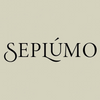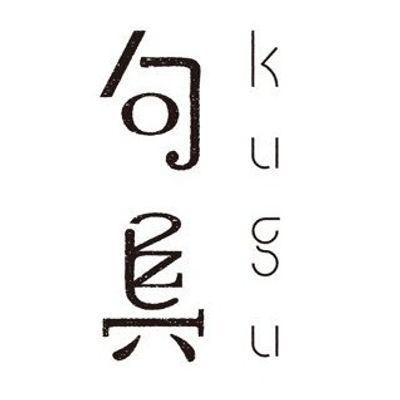Payoo Nepal Picture Card Game
Shipping
■All items will be shipped together from Orosy's contracted warehouse in Tokyo. Shipping costs are confirmed after all items arrive and are packed. You'll be billed separately for the product cost and international shipping. For details, click here.
■The average arrival period is around 4 weeks. Please note that in case of shipping delays, supplier related as well as any other issues.
Please contact support for details regarding your shipping status.
■ All food and beverage shipments to the United States require the purchaser's FDA registration number.
Buyers who do not have an FDA registration number or cannot share it with us will not be able to place an order.
■ Shipping may not be possible depending on the country. Please check your country's regulations before ordering. Orders from areas that cannot be shipped will be canceled.
Couldn't load pickup availability
Payoo is a game designed by Kazi Studios to promote the diverse flora and fauna found in Nepal.
It also illustrates endangered animals based on the National Biodiversity Strategy and Action Plan prepared by the Government of Nepal.
Payoo is a simple card game in which players try to find common patterns from the cards in their hand and the cards in the draw pile.
It can be played in five different ways.
It comes with picture instructions in English.
This game is a card game for all ages.
Ages 4 and up
About Nepal
Nepal's elevation ranges from 70 to 8,848 meters, and its topography changes dramatically over a relatively short distance of 150 to 250 kilometers, resulting in a unique and rich diversity of flora and fauna.
Nepal is divided into five major terrain zones stretching from east to west: High Himal, High Mountain, Middle Mountain, Siwalik, and Terai. The climate varies from a high mountain cold semi-desert type over the Himalayas to a tropical humid type in the Terai lowlands.
The wetland ecosystem is ecologically very important and is home to many endangered plant and animal species and a resting place for globally endangered migratory birds.
Many plant and animal species are endangered, including 54 species of wild mammals and 18 species of trees.
Birds are among the most threatened groups of fauna.
Multiple factors are degrading Nepal's biodiversity.
Cultivated land expansion, infrastructure development, habitat degradation, uncontrolled forest fires, grazing, illegal poaching and wildlife trade, human-wildlife conflict, invasive alien plant species, commercialization of pesticides, improper management, and poor governance are some examples.
The game was designed and produced by Kazi Studios to illustrate Nepal's rich biodiversity, raise awareness about endangered species, and protect Nepal's rich biodiversity.
Payoo consists of 57 cards, each card depicting eight symbols.
There is always one matching symbol between two cards.
You will find a pattern that has the same shape, same color, and differs only in size. They may only differ in size.
The object of the game is to collect as many cards as possible by finding the matching picture between the two cards.
How to play the five games?
Game 1: Tower
Game Preparation: Deal one card face down to each player. The remaining cards are placed face down in the center of the table as a draw pile.
Object of the game: Collect the most cards.
Example of a 3-player setup:
Players playing the game simultaneously turn their cards face up and find one common pattern on both the center card and their card. As soon as a matching pattern is found, that pattern is called. Next, the center card is placed face down on top of his or her card to form a personal pile. Then, using the new top card of the personal pile, find the card that matches the new center card. Play continues until there are no more cards in the draw pile.
The player with the most cards wins the game.
Game 2: The Well
Game Preparation: Place one card face down in the center of the table. Deal the remaining cards face down to all players as evenly as possible.
Objective of the game: To eliminate all cards in hand first.
Example of a setup 3-player game:
At the same time, players turn over the entire draw pile so that it is face down. The first player to find the same symbol on both his or her top card and the center card calls that symbol and places his or her card on top of the center pile.
That card immediately becomes the new center card. Play continues until one player runs out of cards.
Winning the Game: The first player to run out of cards wins.
Game 3: Hot Potato
Game Preparation Deal one card face down to each player. Decide how many rounds to play (minimum 5 rounds).
Object of the game: to have the fewest number of cards after all rounds are completed.
Example of setup 4-player play:
Simultaneously, cards are turned face up. The cards must lie flat in each player's palm. If the pattern of your card matches that of another player's card, call the pattern and place your card face down on top of the other player's card. If you have more than one card in your hand, look only at the top card to find the matching card. Play continues until one player has all the cards. That player loses the round and places his or her cards in front of him or her. A new round begins.
The player with the lowest number of cards in hand at the end of the last round that wins the game wins.
Game 4: Poisoned Gifts
Game Preparation: Deal one card face down to each player and place the remaining cards face up in the center of the table as a draw pile.
Object of the game: to have the fewest number of cards.
Example of setup 4-player play:
Simultaneously turn the cards face up. Players look for a match between the center card and another player's card. When a matching card is found, it is called. The center card is then taken and placed on top of the other player's matched card.
This is the [poisoned gift]. Play continues until there are no more cards in the draw pile.
Game is won by the player with the lowest number of cards.
Game 5: Triplet
Prepare for the game: Place all cards face down in a pile. Take the first nine cards and place them face down on the table.
Objective of the game: To collect the most cards.
Example of play: Players look for the same pattern on all three cards at the same time; if all three cards have the same pattern, there is a matching set. Once a matching set is found, it is called immediately. The three cards with matching symbols are taken and replaced with three new cards. The game ends when there are 9 or fewer cards remaining and there are no more matching sets of 3 cards.
Player who has the highest number of cards is the winner of the game.


















